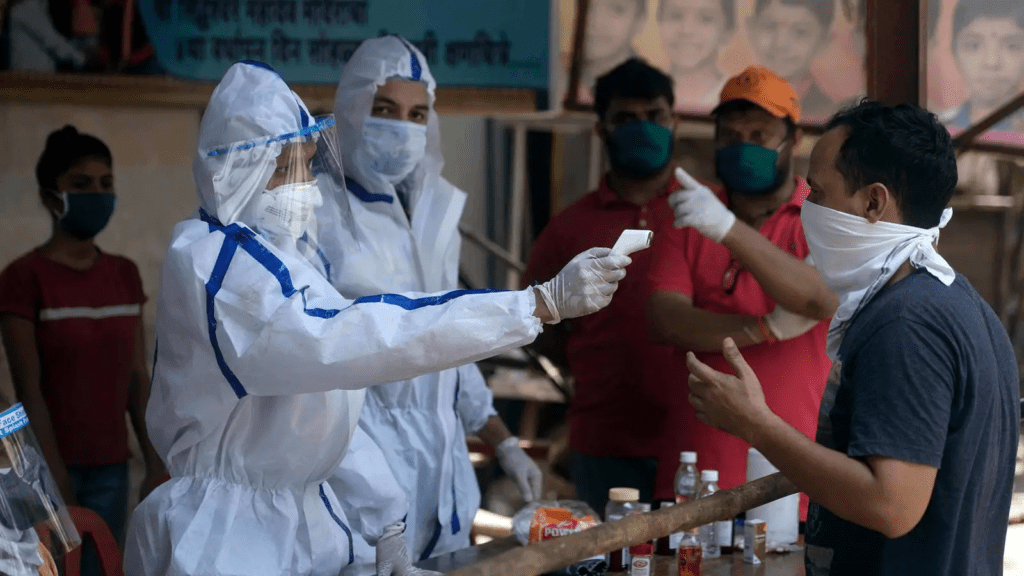Alarming Rise: India’s COVID-19 Cases Top 4,100, JN.1 Variant Fuels New Wave
In a recent and concerning development, India’s battle against COVID-19 has taken a new turn with the number of active cases surpassing the 4,100 mark, fueled primarily by the emergence of the JN.1 COVID-19 subvariant. As the nation grapples with this resurgence, the total death toll has climbed to 5.33 lakh, as reported by the Union Health Ministry.
Table of Contents
The surge in cases, particularly those attributed to the JN.1 subvariant, raises alarms about the variant’s transmissibility and its potential impact on public health. This new subvariant of the coronavirus has been identified as a driver of the recent spike in cases not only in India but in several other countries.
Article Summary in 5 Points:
- Surge in COVID-19 Cases: India’s active COVID-19 cases have exceeded 4,100, with a significant rise attributed to the JN.1 subvariant.
- State-Specific Impacts: Regions like Karnataka and Delhi are experiencing a surge in JN.1 cases, prompting state governments to take precautionary measures.
- Nationwide Spread of JN.1 Variant: The variant has been reported in several Indian states, indicating a potential for a wider spread across the country.
- Expert Insights on Vaccination: Dr. Randeep Guleria suggests that vaccines effective against Omicron may also work against JN.1, though more data is needed for confirmation.
- A Call for Continued Vigilance: The rise in cases necessitates ongoing caution, adherence to health guidelines, and sustained vaccination efforts to combat the pandemic.
The Surge in Numbers
India witnessed an alarming increase in COVID-19 cases on Monday, with 628 new infections reported, raising the active case count to 4,054. Among these, a significant number of cases were identified as being caused by the JN.1 subvariant. On Tuesday, the number of active cases climbed further to 4,170, with 412 new JN.1 infections reported in the last 24 hours.

State-wise Impact and Response
Karnataka, one of the states hit hard by the JN.1 subvariant, reported 34 new cases on Monday. The Karnataka cabinet sub-committee on coronavirus convened on Tuesday to discuss the situation. Despite the rise in cases, Karnataka Health Minister Dinesh Gundu Rao assured that there would be no immediate restrictions but emphasized the need for continued caution among the populace.
Similarly, the Delhi government, in light of the increase in cases and the upcoming new year celebrations, has advised citizens to wear masks and avoid large gatherings. This is a precautionary measure to curb the spread of the virus, especially given the transmissibility of the JN.1 variant.
Nationwide Variant Spread
As of Sunday, India had reported a total of 63 cases of the JN.1 variant. These cases are distributed across various states, with Goa reporting 34 cases, followed by Maharashtra, Karnataka, Kerala, Tamil Nadu, and Telangana. The spread of this subvariant across multiple states indicates its potential to fuel a nationwide surge in cases.
Expert Opinions and Vaccine Efficacy
Dr. Randeep Guleria, former AIIMS director, expressed concerns about the JN.1 variant’s transmissibility and rapid spread. He noted that symptoms include fever, cough, cold, sore throat, running nose, and body aches. Addressing the effectiveness of existing vaccines against this new subvariant, Dr. Guleria stated that vaccines developed against Omicron are likely to be effective against JN.1 as well. However, he highlighted the need for more data to determine the current immunity levels in the population and the efficacy of previous vaccinations.
Moving Forward: A Cautious Approach
As India confronts this new wave of COVID-19 infections, the focus remains on monitoring the spread of the JN.1 subvariant and ensuring public adherence to health advisories. The situation calls for a balanced approach, weighing the need for normalcy against the imperative of public health safety. Vaccination efforts continue to be a critical component in combating the virus, with ongoing research and data analysis guiding future strategies.
In conclusion, as India faces this new challenge in its fight against COVID-19, the collective efforts of the government, healthcare professionals, and the public will be crucial in navigating this phase of the pandemic. Staying informed, vigilant, and prepared remains the key to overcoming the hurdles posed by the JN.1 subvariant and ensuring the health and safety of the nation.
Read: Kelly Clarkson’s Remarkable 18 KG Weight Loss: A Deep Dive into the Plant Paradox Diet
Also Read: Taylor Swift Celebrates Christmas Day Rooting for Travis Kelce at Chiefs’ Game



















+ There are no comments
Add yours